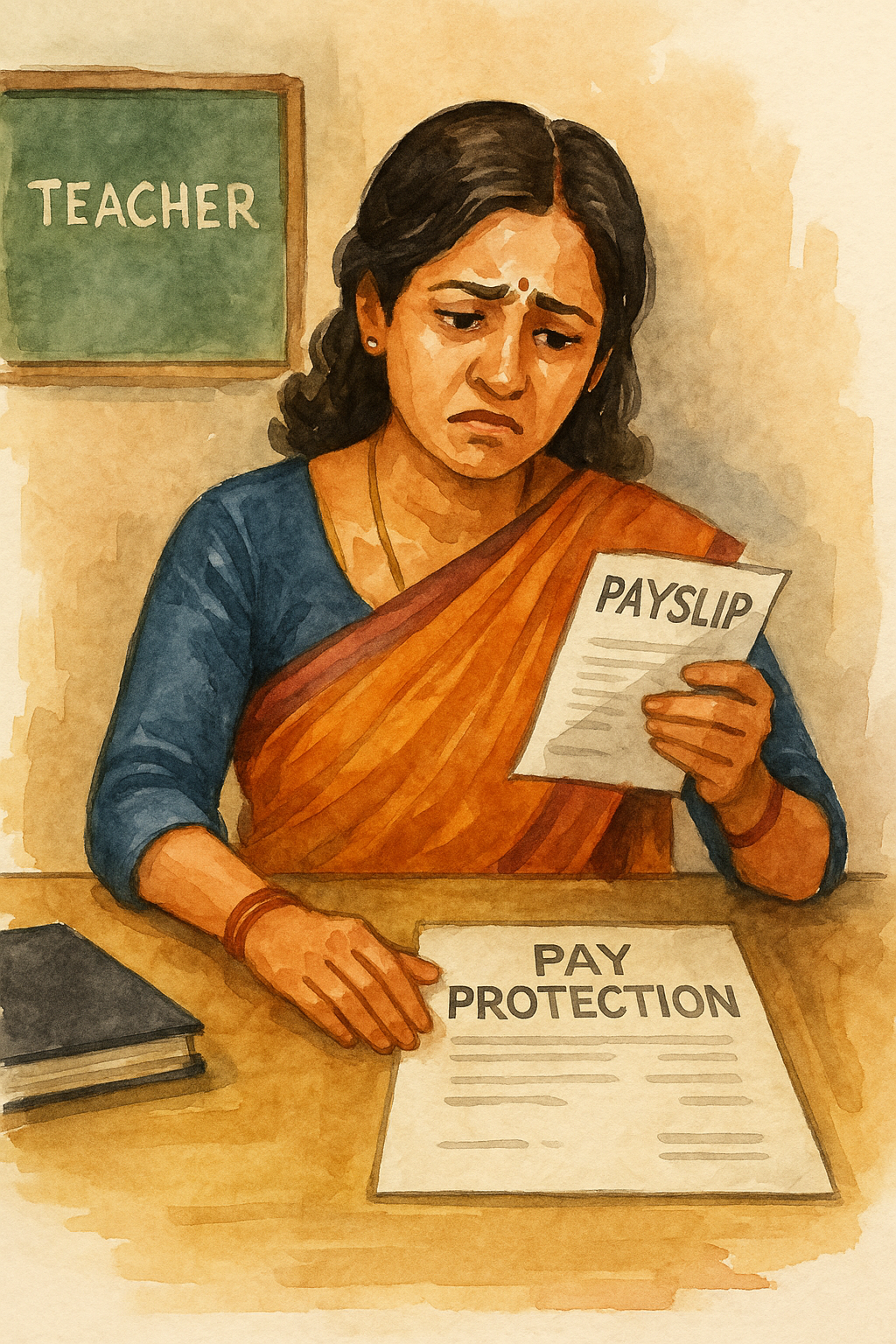Simplified Explanation of the Judgment
The Patna High Court examined whether a teacher who had earlier served in a Jawahar Navodaya Vidyalaya (JNV) was entitled to pay protection after being freshly appointed as a Headmaster in a Bihar Government school.
The appellant was an Assistant Teacher at a JNV in Jharkhand. In 2005, the Bihar Public Service Commission advertised vacancies for Headmasters in secondary schools across Bihar. The appellant applied, was selected, and formally appointed as a Headmaster in 2014. Upon joining, she demanded that her previous JNV salary be protected in her new post. Without such protection, her pay dropped significantly.
She relied on Rule 3 of the Bihar Service Code, which preserves existing privileges of employees, and also cited a Supreme Court ruling in Krishna Kant Tiwari v. Kendriya Vidyalaya Sangathan (2014) 3 SCC 471, where pay protection was allowed for teachers moving from state schools to central schools.
The Bihar Government, however, rejected her request through an order dated 29.01.2016, stating that her Headmaster post was a fresh appointment with no clause for pay protection. The Single Judge of the High Court upheld this reasoning, and the matter came before a Division Bench.
The Division Bench confirmed that:
- Her appointment was through fresh recruitment under a public advertisement.
- Rule 3 of the Service Code applies only where there is an existing contract or prior service under the Bihar Government. Since the appellant came from a central JNV (not Bihar’s state service), she could not claim benefits.
- Pay protection applies mainly to internal movements within the same government or service structure, not across institutions.
- The earlier Division Bench ruling in State of Bihar v. Rajendra Rai (2019) had already clarified that direct recruits to Headmaster posts cannot claim such protection.
Accordingly, the appeal was dismissed.
Significance or Implication of the Judgment
- For teachers and employees: Moving from a central institution (like JNV) to a state government post is treated as a fresh start. Pay protection benefits are not guaranteed unless expressly provided.
- For the Bihar Government: The ruling prevents unnecessary financial burden and sets a precedent that only state employees governed by the Bihar Service Code can claim such privileges.
- For the education sector: It creates clarity for teachers transitioning between central and state systems about what service benefits will carry over.
Legal Issue(s) Decided and the Court’s Decision
- Issue 1: Is a Navodaya teacher entitled to pay protection when appointed as Headmaster in Bihar Government schools?
Decision: No. It was a fresh appointment, and Rule 3 of the Bihar Service Code does not apply. - Issue 2: Does Supreme Court precedent in Krishna Kant Tiwari apply?
Decision: No. That case dealt with transfers within recognized government frameworks. Here, the appellant entered Bihar service for the first time. - Issue 3: Can pay protection apply to fresh recruits under open advertisement?
Decision: No. Pay protection is not a universal rule; it is only for internal transitions within the same service system.
Judgments Referred by Parties
- Krishna Kant Tiwari v. Kendriya Vidyalaya Sangathan, (2014) 3 SCC 471
Judgments Relied Upon or Cited by Court
- State of Bihar & Ors. v. Rajendra Rai & Ors. (LPA No. 374 of 2019 and analogous cases)
Case Title
Dr. Sunita Kumari v. State of Bihar & Others
Case Number
Letters Patent Appeal No. 1674 of 2018
(in Civil Writ Jurisdiction Case No. 5152 of 2016)
Citation(s)
2021(1) PLJR 662
Coram and Names of Judges
- Hon’ble Mr. Justice Dinesh Kumar Singh
- Hon’ble Mr. Justice Anil Kumar Sinha
Names of Advocates and who they appeared for
- Mr. Md. Helal Ahmad — for the appellant
- Mr. Ashutosh Ranjan Pandey, AAG-15 — for the respondents
Link to Judgment
MyMxNjc0IzIwMTgjMSNO-xls64–ak1–tc4ts=
If you found this explanation helpful and wish to stay informed about how legal developments may affect your rights in Bihar, you may consider following Samvida Law Associates for more updates.









